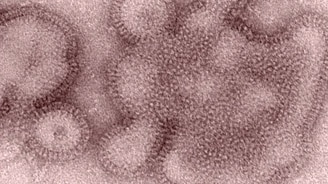
# 6481
As the epidemiological investigation continues into the outbreaks of swine-origin H3N2v influenza in Ohio and Indiana, the number of confirmed human infections continues to rise.
This afternoon the Indiana State Department of Health released the following press release, which indicates they have now confirmed 113 cases across 18 counties.
This is more than a ten-fold increase over the number of cases they were reporting on Saturday (see ISDH: Indiana Announces 6 More H3N2v Cases). The identification of more positive cases are expected.
While they are investigating the possibility of human-to-human transmission, they have not determined that at this time.
We will obviously be watching to see if the neighboring state of Ohio reports a rise in their case counts as well.
Health Officials Confirm 113 Cases of Variant Influenza A Statewide
Start Date: 8/8/2012
INDIANAPOLIS—Health officials have now confirmed 113 cases of variant influenza A (H3N2v), impacting 18 counties statewide. State and local health officials continue to investigate the outbreak. More cases are expected to be confirmed this week.
Variant influenza A cases have been confirmed in the following counties: Bartholomew, Greene, Hamilton, Hendricks, Jackson, Jennings, Johnson, Kosciusko, LaPorte, Lawrence, Monroe, Morgan, Owen, Porter, Scott, Tipton, Washington, and White. No cases have been reported in Marion County at this time.
The Indiana State Department of Health has set up a call center to answer the general public’s questions regarding variant influenza A. The call center is open from 8:15 a.m.-4:45 p.m., Monday through Friday. The call center telephone number is (877) 826-0011.
“It’s important for folks to remember this is a mild illness with symptoms similar to what we see with seasonal flu,” said State Health Commissioner Gregory Larkin, M.D. “Because this is a relatively new strain of flu, only first seen in July of last year, a vaccine is not yet available. However, you can help to protect yourself by practicing thorough and frequent hand washing and by being mindful not to eat around barn animals.”
Flu symptoms usually include fever and respiratory symptoms, such as cough, sore throat, and runny nose, and possibly other symptoms, such as body aches, nausea or vomiting, or diarrhea. Symptoms may last anywhere from three to eight days.
To avoid influenza and other respiratory infections, Hoosiers are reminded to follow these simple practices:
· Wash your hands frequently, including before and after touching animals.
· Never eat, drink, or put anything in your mouth when visiting animal areas.
· Older adults, pregnant women, young children, and people with weakened immune systems should be extra careful around animals.
· Cough or sneeze into your sleeve or elbow.
· If possible, avoid contact with those who are ill.
· Stay home if you develop influenza symptoms and contact your health care provider.
Health officials have not determined person to person transmission at this time, but continue to investigate the possibility. Variant Influenza A virus can be directly transmitted from swine to people and from people to swine. Human infections are most likely to occur when people are in close proximity to live infected pigs, such as working with them in barns and livestock exhibits at fairs. Influenza viruses are not transmitted by eating pork and pork products.
Additional information regarding influenza can be found at the Indiana State Department of Health website at www.in.gov/isdh/25462.htm.
For more on this outbreak of H3N2v swine flu, you may wish to visit the CDC’s summary as of last Friday.
CDC Reports Cases 18-29 of H3N2v Virus Infection; Continues to Recommend Interim Precautions When Interacting with Pigs
Related Post:
Widget by [ Iptek-4u ]